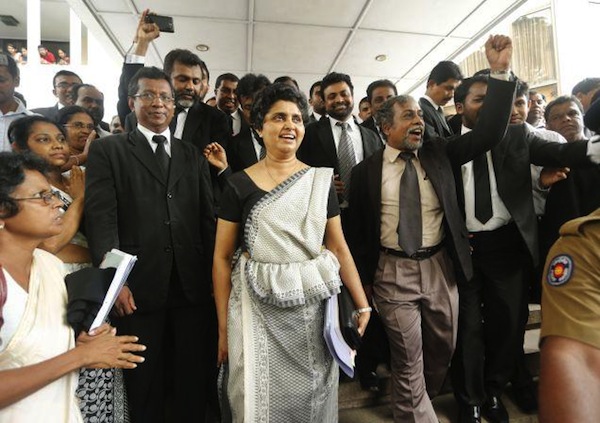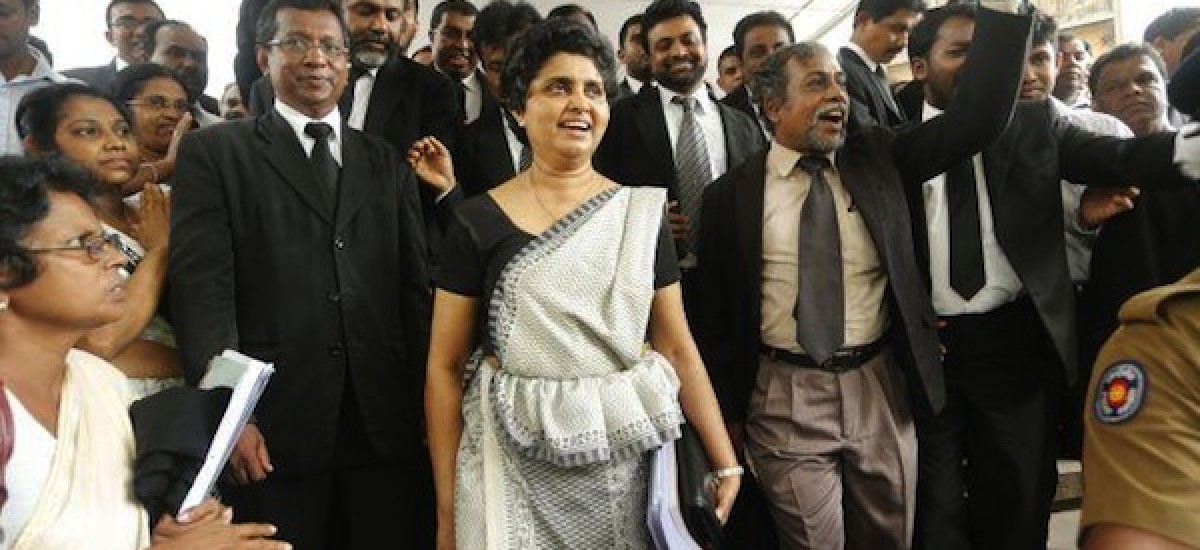
Image courtesy The Hindu
Groundviews interviewed Asanga Welikala, a Senior Researcher at the Centre for Policy Alternatives (the institutional anchor of this website) on the unprecedented constitutional crisis that has gripped Sri Lanka. Over the years, Asanga’s appeared many times on Groundviews, including most recently, speaking about the dynamics of constitution making in Sri Lanka post-independence. He has also contributed some of this site’s most read and quoted articles.
For ease of access, engagement and virality on the web, Asanga’s remarkably frank and insightful interview is broken up into segments based on the questions he was asked.
Please outline the seriousness of the present constitutional imbroglio regarding the impeachment of the Chief Justice. Why should the ordinary citizen care about what is going on?
Many in the South, who consume State media, believe that Chief Justice Shirani Bandaranayake was corrupt, and therefore feel it is justified she was impeached. What is your response to this widespread perception?
Since the announcement of the impeachment proceedings (which I understand is a constitutional and provided for in the law) was there anything that could have been done differently to avoid what we are facing today?
Do the fundamental problems arising from and seriousness of the current constitutional crisis require a rewrite of [Political Science] textbooks in school?
Given that we are facing an unprecedented constitutional crisis, what options are there for a restoration of faith in the independence of the judiciary?
Some of those who oppose the impeachment are arguably compromising the position of Chief Justice by politicking with her, a state of affairs that she, by lack of any distancing, is actively encouraging? Why are no objections on this?
A Fundamental Rights petition has been filed by the Centre for Alternatives (CPA) today seeking to restrain the Parliamentary Council from considering the appointment of a new Chief Justice and restrain Mohan Peiris from functioning as the CJ on the basis that there is no vacancy. The Parliamentary Council has approved the nomination of Mohan Peiris as the new CJ. What now?
Deputy Speaker Chandima Weerkkody is quoted in the media noting that the appointment of a new Chief Justice would be done by the President and that appointment could not be challenged before a court of law. Deputy Speaker Weerakkody said that when the then President Chandrika Kumaratunga appointed Shirani Bandaranayke, a Supreme Court judge in 1996, some parties had challenged the appointment in the Supreme Court which had given a determination that the Presidential appointments could not be challenged. What is your take on this?
On 14 January 2013, the President, after meeting with the Bar Association averred that “The impeachment process was carried out strictly according to the current Constitution. There may be imperfections with our Constitution. No country has a constitution that is perfect, but we have to follow it.” What is your response to this assertion?
What to make of the Opposition’s (i.e. the United National Party’s) confused and confusing approach to the impeachment process?
Can Sri Lanka legitimately host the Commonwealth Summit if there is no independent judiciary and with a debilitating breakdown in constitutional governance? What are the implications of the present context over 2013 and beyond?

